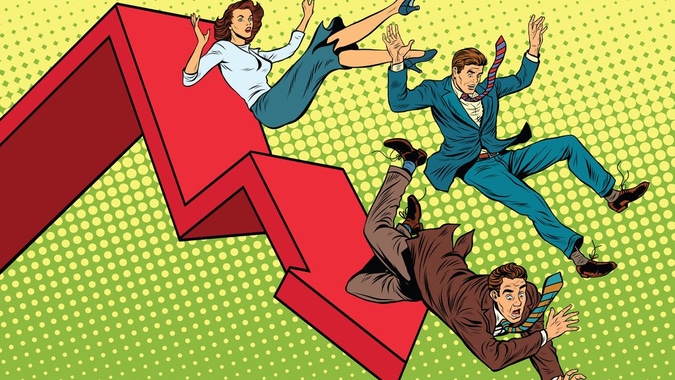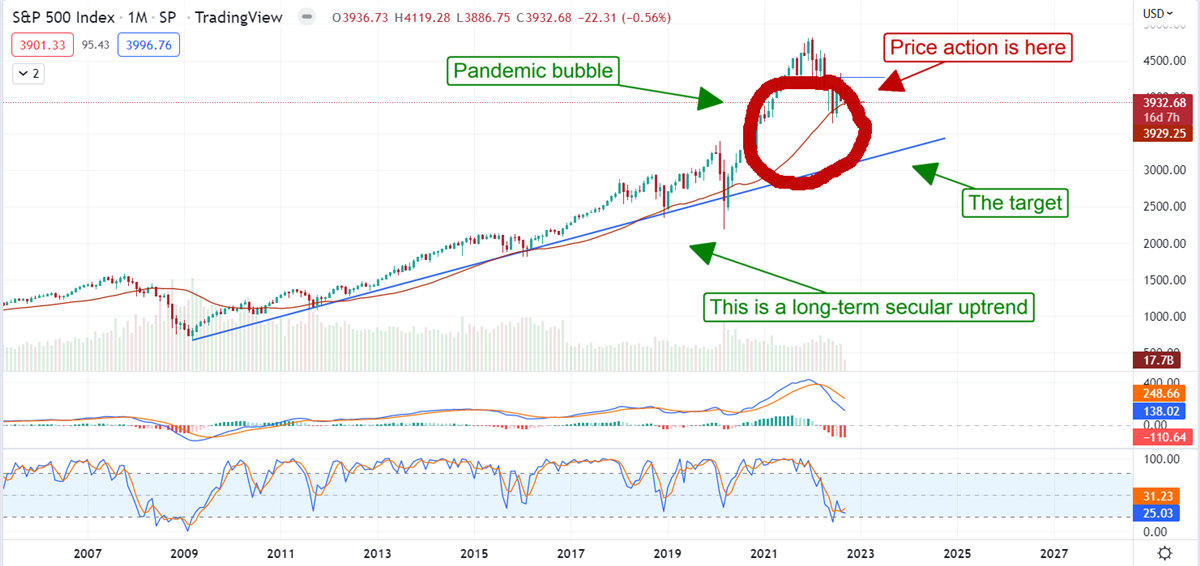It was only two days ago I predicted another drop in the S&P 500 (NYSEARCA: SPY), and oh, what a difference those days have made. Since then, we’ve got not one but two horribly bad inflation reports that have the outlook for interest rate hikes and recession reaching new peaks. As if the CPI data wasn’t bad enough, accelerating on all levels to new highs, the PPI data does not point to a slowdown in inflation.

MarketBeat.com – MarketBeat
No, the PPI headline figure came in at -0.1% from last month, which is good but offset by the fact the deceleration which began last month is already showing signs of reacceleration, and the core and YOY figures are very hot. At the core level, producer prices rose by 0.2% month to month and 5.6% YOY, which are both down slightly from the peak set earlier this year but essentially running at the same levels as last year. Did inflation peak? Sure it has, but it’s running at a high 5.6% level at the core, which is still more the double the Fed’s target so they have to act, and act they will, and it will be next week.
The Fed has been behind the curve since the beginning, letting the market tell it what to do, listening to “???” because it’s pretty obvious inflation is systemic, creating negative feedback loops and out of control. What this means is a 100% chance of another 3rd and historic 75 basis point interest rate hike next week and what I would consider a high 36% chase of 100 bps which is very telling. Some in the market are starting to wake up to the fact inflation is not under control, and the Fed is about the fix it. There has never until now been a significant chance of a 100 bps rate hike since this thing began, and the market has not priced one in so this is news that could move the market. Making a 100 bps hike would also be consistent with Mr. Powell’s pledge to fight inflation till it’s under control, inflicting pain on American households and businesses, so it would be smart to be ready.
The Hurricane Is Here
Jamie Dimon predicted an economic hurricane was approaching way back in the spring of the year, and now it’s hurricane season. The Fed’s already aggressive actions are having a deep impact on the housing market, at least, which is showing signs of implosion. The Golden Age that began in the wake of the pandemic is already over, with mortgage demand slipping on a month-to-month basis and down 29% from last year. This is ultimately good for the housing market; it will allow prices to cool (maybe) and inventory to build (possibly), but demand remains pent up and is building as well. And it will take time, housing inventory won’t just materialize, and there will be a slowdown in homebuilding activity that will send rippling effects through the economy.
Looking at the latest housing data, the starts and permits were mixed in that permits rose 1.1% but starts declined by 8% in July. That was compounded by the new home sales figures, which fell 12% sequentially and 29.6% YOY. Existing home sales, by far the bulk of the housing market, fell by 20.2% YOY, and the pace is accelerating. When the Fed hikes rates by 75 to 100 bps next week, the average yield on a 30-year mtg will go far above 6% and put additional pressure on this market, as well as all other forms of consumer and business credit. The times are a-tightening, and the S&P 500 needs to be ready for it.
The Technical Outlook: The S&P 500 Is In Bear-Market Mode
The S&P 500 is deep in the throes of a bear market that began late last year and still has 6 to 18 months to play out. The Head & Shoulders Pattern I’ve been tracking has been confirmed numerous times, and the post-CPI decline in the index is consistent with that outlook. The takeaway from the -4.32% move is that this is a high-conviction move representing a bulk of market participants, enough to have the market tide flowing out and not in. The lower targets for this move are hard to pinpoint with precision, but it looks like a move down to the long-term trend line is going to happen. That would bring the index down to the 3,200 level or lower as the bubble which formed in the wake of the pandemic deflates. Make no mistake, what we are experiencing now is the combined effects of the economic shutdown, pandemic spending, pandemic stimulus, government policy, and a negligent and partisan FOMC, and this storm has only just begun. 